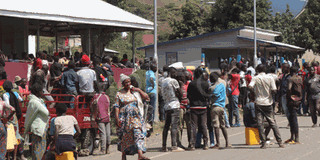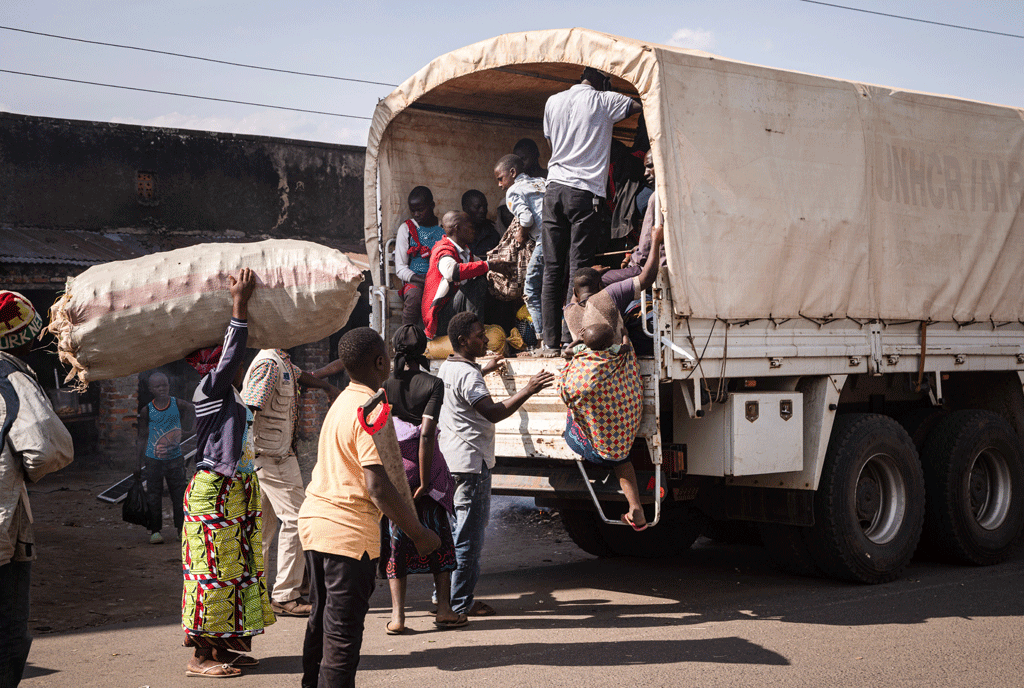Prime
32,000 Congolese register as new refugees in Uganda

Some of the Congolese refugees at Bunagana border town in Kisoro District on June 12, 2022 following renewed fighting between M23 rebels and the Democratic Republic of Congo government soldiers. PHOTO/ROBERT MUHEREZA
What you need to know:
- The police spokesperson, Mr Fred Enanga, said 509 new asylum seekers have also been accepted in Uganda on refugee status
The joint security agencies monitoring the border between Uganda and the eastern part of the Democratic Republic of Congo (DRC) have confirmed a total of 32,299 Congolese nationals living in Uganda on refugee status since March 2022.
The Congolese nationals have been fleeing into Uganda through Bunagana Border Post in Kisoro District following heavy fighting between the DRC government forces and suspected M23 rebels in the eastern Democratic Republic of Congo (DR Congo).
The police spokesperson, Mr Fred Enanga, told journalists in Kampala yesterday that 509 new asylum seekers have also been accepted in Uganda on refugee status.
“The accumulative number for Congolese on refugee status in Uganda is now 32,299 individuals from 16,646 households, and they have been transferred to Nyakabande transit centre,” he said.
Mr Enanga assured the residents near the border that security agencies will continue to protect the border with the eastern DRC.
Hundreds of Congolese nationals have since been fleeing into and out of Uganda amid sporadic fighting between the DRC government troops and M23 rebels. But M23 rebel leaders said they have now allowed the Congolese refugees that had camped at Bunagana Town Council in Kisoro District to return to their respective homes, stating that the country was now peaceful.
The spokesperson of the M23 rebels, Maj Willy Ngoma, confirmed the development in a telephone interview with Daily Monitor yesterday. “It’s true that we allowed the Congolese nationals that had fled their country to return home because we believe it is now safe for them. All the returning Congolese nationals must be properly screened and registered for security purposes,” Maj Ngoma said.
Despite assurance of safety back home, other refugees opted to remain in Kisoro, claiming that they would be victimised for supporting the Congolese government troops whose bases were captured by the M23 rebels.
Mr Bosco Kumwami and Mr Jumaine Ndayishimiye, all Congolese refugees, questioned the motive of the M23 rebel leaders in registering every one that returns home.
“Why should I be registered yet I am returning to my home country? There could be some ill motive behind this registration,” Mr Ndayishimiye said.
KISORO APPEALS FOR FOOD SUPPORT
The Kisoro District chairperson, Mr Abel Bizimana, has said there is an impending food crisis and possible disease outbreak because ever since March 28, more than 30,000 Congolese refugees have crossed into the area, exerting pressure on the limited resources such as food and health services.
“We appeal to the Office of the Prime Minister to consider giving immediate food relief to the people in the border community in Kisoro because most of the food they had planned to sustain them in one year has been consumed by the Congolese refugees some of whom were buying it while others were stealing it,” Mr Bizimana said.





